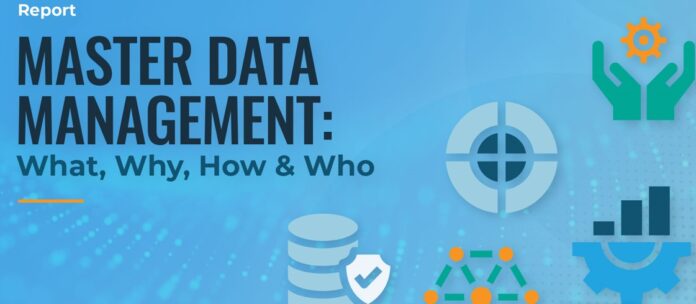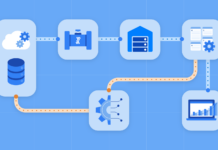Data is the lifeblood of today’s connected world, with organizations relying on it to drive decisions and inform strategies. However, managing data in an orderly way across all parts of a business can be complicated – especially when trying to collect and maintain quality master data. That’s where a Master Data Management (MDM) solution comes in – offering businesses a consolidated platform that enables unified access to disparate data streams while providing reliable quality control measures. With an MDM system now considered essential for successful enterprise management, business owners must learn more about the Microsoft Intelligent Data Platform and the advantages it can bring to their organization.
Unify And Maintain Accurate Data
In today’s fast-paced and dynamic business landscape, organizations face the growing challenge of managing vast amounts of data across multiple systems and interconnected departmental silos. Maintaining accurate and consistent data across all platforms ensures smooth operations, informed decision-making, and increased productivity. However, unifying and syncing data from different sources can be complex and time-consuming, requiring robust tools, cross-functional collaboration, and a data-driven culture.
Organizations need to adopt a strategic approach to data management to address this challenge, leveraging advanced technologies, data governance frameworks, and skilled personnel to optimize data quality, reliability, and accessibility. By unifying and maintaining accurate data across multiple systems and departments, organizations can streamline their business processes, enhance customer experience, and stay ahead of the competition.
Enhance Security Through Access Control

One of the most critical aspects of protecting sensitive data is controlling access to it. In today’s rapidly evolving digital landscape, companies face increasing security threats from cybercriminals and information leaks. By better managing access to sensitive data, businesses can significantly reduce the likelihood of unauthorized access and minimize the risks associated with data breaches.
Employee education and training, setting up strong authentication processes, and implementing robust access controls are all essential steps in enhancing security. By adopting a proactive and comprehensive approach to data access management, businesses can better protect themselves and their customers from potential threats.
Streamline And Automate Manual Processes

Streamlining and automating manual processes can significantly improve an organization’s efficiency and productivity. Employees can devote their time to more complex and value-adding activities by automating repetitive tasks. It saves time, minimizes errors, and ensures consistency in output. Moreover, automated processes can be monitored and adjusted in real-time, enabling businesses to adapt quickly to changing requirements. In short, companies can achieve significant efficiency, productivity, and profitability gains by leveraging technology to eliminate manual tasks.
Increase Insight Through Advanced Analytics
Advanced analytics can provide invaluable insight into current operations, allowing businesses to optimize their processes and make more informed decisions. With the ability to gather and analyze vast amounts of data from various sources, such as sensors and social media, businesses can deeply understand their operations and uncover critical insights that may have otherwise gone unnoticed.
By utilizing advanced analytics, businesses can identify areas of improvement, predict future trends, and make data-driven decisions that can increase efficiency and profitability. With the wealth of information available through advanced analytics, the possibilities for businesses to optimize their operations are endless, making it an essential tool for any organization looking to stay ahead in today’s competitive market.
Create A Single Source Of Truth
Establishing a single source of truth is vital for any successful project. Having multiple versions of the same data floating around can be confusing and cause delays. A single source of truth helps ensure everyone involved in the project has access to the same critical information, ensuring all stakeholders are on the same page. Without a unified source of information, it can be challenging to track down data and keep everyone up to speed. Creating a single source of truth prevents wasting time trying to track down disparate pieces of data and ensures everyone focuses on essential information.
How to choose Master Data Management Solution

Master Data Management (MDM) is a vital process that helps organizations manage their data effectively. It involves the creation and management of a single source of truth for data across an organization. MDM solutions play a critical role in facilitating this process. However, with the numerous MDM solutions available in the market, selecting the right one can be a daunting task.
Business Needs:
The first step in selecting an solution is to understand your organization’s specific business needs. Determine the type of data you need to manage, the frequency of data changes, the number of users, the level of data security required, and any regulatory compliance requirements. This information will help you choose an MDM solution that fits your organization’s unique needs.
Integration:

The MDM solution you choose should be able to integrate seamlessly with your existing applications, data sources, and data warehouse. This integration ensures that data is shared effectively between systems and that data quality is maintained across the organization.
Data Governance:
MDM solutions must adhere to data governance principles, such as data lineage, data quality, and data security. Look for a solution that provides robust data governance capabilities to ensure the accuracy, completeness, and consistency of your organization’s data.
Scalability:
As your organization grows, your data management needs will evolve. Therefore, choose an MDM solution that can scale to meet your organization’s future requirements.
Vendor Support:
Choose an MDM solution from a vendor that provides good customer support, including training, technical support, and regular updates. Good vendor support ensures that your MDM solution runs efficiently, reducing the risk of data errors.
Cost:
Finally, consider the cost of the MDM solution. Choose an MDM solution that fits your budget and provides value for money. However, it is important to note that the cheapest option may not always be the best.
Final Thoughts

When business owners learn more about the Microsoft Intelligent Data Platform, they can begin to understand the potential of their data. Companies that use this platform can expect cost savings, improved security, streamlined processes, and increased insight into their operations. By leveraging intelligent data, businesses can stay ahead of the competition in today’s digital landscape.









